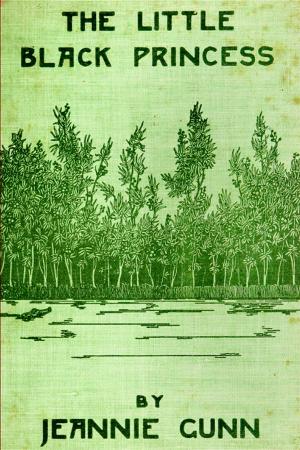| Author: | MARY ELIZABETH BRADDON | ISBN: | 1230002420493 |
| Publisher: | Jwarlal | Publication: | July 10, 2018 |
| Imprint: | Language: | French |
| Author: | MARY ELIZABETH BRADDON |
| ISBN: | 1230002420493 |
| Publisher: | Jwarlal |
| Publication: | July 10, 2018 |
| Imprint: | |
| Language: | French |
It had been raining all the morning, and it was raining still, in that feeble and desultory manner which presages a change of some kind, when the postman came with the long-expected Indian letter.
He was later than usual. It was nearly two o'clock, and Isola had been watching for him since one, watching with an unread book in her lap, listening for the click of the gate. She had been sitting by the open window, looking out at the wet landscape, the glistening hedgerow and dull grey river, with the great, green hill beyond, a steep slope of meadow land, dotted with red cattle, and so divided by hedgerows, as to look like a Titanic chessboard.
At last she heard the familiar tread of the postman's heavy boots, and saw his shining oilskin hat moving above the edge of the hollies, and heard the click of the iron latch as he came into the little garden.
She called to him from the window, and he came tramping across the sodden grass and put three letters into her outstretched hand.
One from her married sister in Hans Place. That would keep. One from an old schoolfellow. That would keep. And one—the long-looked-for Indian letter, which she tore open eagerly, and read hurriedly, devouring the close lines, in the neat, black penmanship, with its decided up and down strokes, and legible characters, so firm, so strong, so straightforward, like the nature of the man who wrote the letter.
The tears sprang to her eyes as she came to the end, and her hands crushed the thin paper in a paroxysm of vexation or despair.
"Six months—perhaps a year, before he can come back, and I am to go on living here—alone, unless I like to send for a girl whose face I hardly know, to keep me company, and cheer me with her good spirits. I want no strange girls. I want no one's good spirits. I hate people with good spirits. I want him, and nobody but him! It is hard that we should be parted like this. I ought to have gone with him, in spite of all the doctors in Christendom."
She relented towards the letter which her feverish hand had used so badly. She smoothed out the flimsy paper carefully with that pretty little hand, and then she re-read the husband's letter, so full of grave tenderness and fond, consoling words.
He was with his regiment in Burmah, and the present aspect of things gave him no hope of being able to return to England for the next half-year, and there was no certainty that the half-year might not be stretched into a whole year. The separation could not be more irksome to his dearest Isola than it was to him, her husband of little more than a year: but not for worlds would he have exposed her to the risks of that climate. He took comfort in thinking of her in the snug little Cornish nest, with his good Tabitha.
It had been raining all the morning, and it was raining still, in that feeble and desultory manner which presages a change of some kind, when the postman came with the long-expected Indian letter.
He was later than usual. It was nearly two o'clock, and Isola had been watching for him since one, watching with an unread book in her lap, listening for the click of the gate. She had been sitting by the open window, looking out at the wet landscape, the glistening hedgerow and dull grey river, with the great, green hill beyond, a steep slope of meadow land, dotted with red cattle, and so divided by hedgerows, as to look like a Titanic chessboard.
At last she heard the familiar tread of the postman's heavy boots, and saw his shining oilskin hat moving above the edge of the hollies, and heard the click of the iron latch as he came into the little garden.
She called to him from the window, and he came tramping across the sodden grass and put three letters into her outstretched hand.
One from her married sister in Hans Place. That would keep. One from an old schoolfellow. That would keep. And one—the long-looked-for Indian letter, which she tore open eagerly, and read hurriedly, devouring the close lines, in the neat, black penmanship, with its decided up and down strokes, and legible characters, so firm, so strong, so straightforward, like the nature of the man who wrote the letter.
The tears sprang to her eyes as she came to the end, and her hands crushed the thin paper in a paroxysm of vexation or despair.
"Six months—perhaps a year, before he can come back, and I am to go on living here—alone, unless I like to send for a girl whose face I hardly know, to keep me company, and cheer me with her good spirits. I want no strange girls. I want no one's good spirits. I hate people with good spirits. I want him, and nobody but him! It is hard that we should be parted like this. I ought to have gone with him, in spite of all the doctors in Christendom."
She relented towards the letter which her feverish hand had used so badly. She smoothed out the flimsy paper carefully with that pretty little hand, and then she re-read the husband's letter, so full of grave tenderness and fond, consoling words.
He was with his regiment in Burmah, and the present aspect of things gave him no hope of being able to return to England for the next half-year, and there was no certainty that the half-year might not be stretched into a whole year. The separation could not be more irksome to his dearest Isola than it was to him, her husband of little more than a year: but not for worlds would he have exposed her to the risks of that climate. He took comfort in thinking of her in the snug little Cornish nest, with his good Tabitha.















